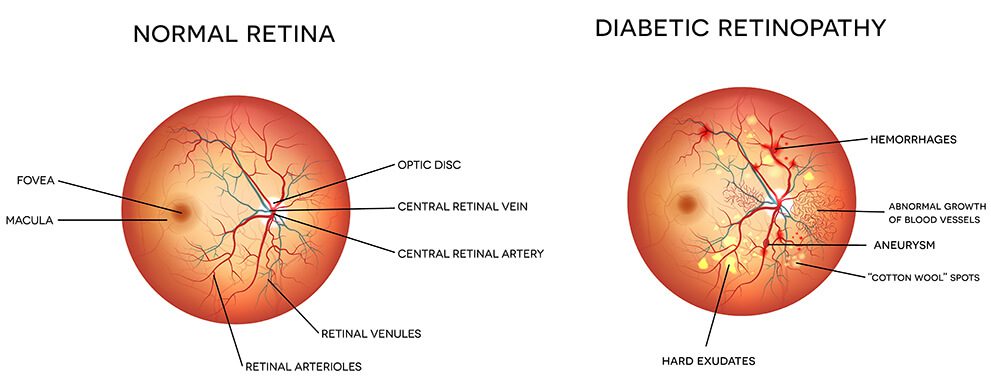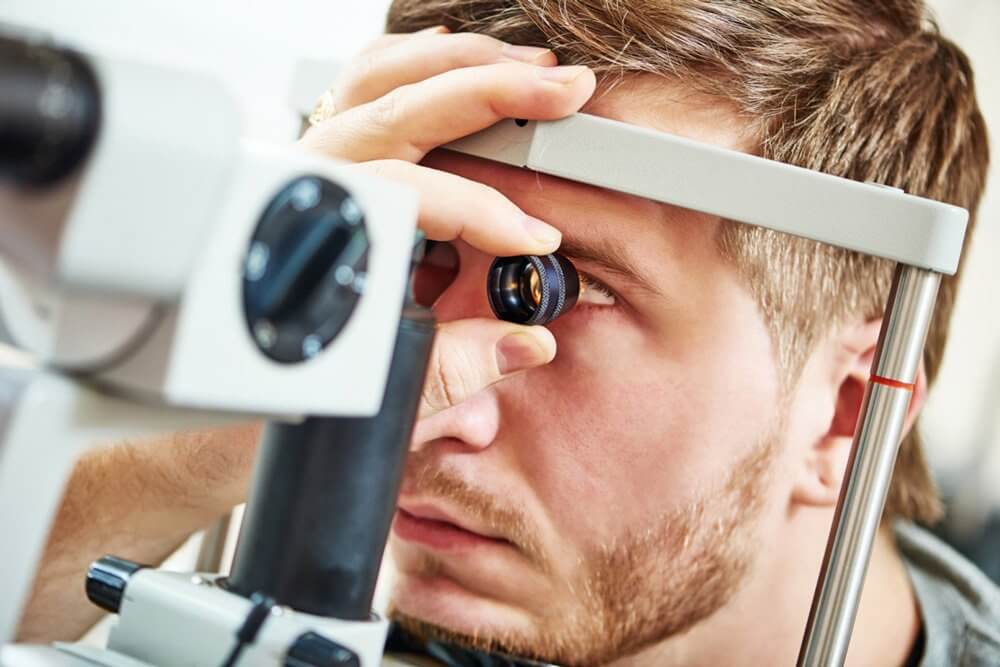Eye Centers of Florida is merging with Quigley Eye Specialists to become The Eye Associates.
Taking proper care of your eyes requires regular visits to an eye doctor, but this is especially true for people with diabetes. Here at Eye Centers of Florida, we’re dedicated to preserving your eyesight. If you’re one of our diabetic patients, this means examining your eyes regularly for early signs of diabetic retinopathy.
We’re here to make sure your eyes continue functioning properly for the long-term. Learning about diabetic retinopathy and scheduling eye examinations at Eye Centers of Florida can help with early detection, the first step in preserving your eyesight.

Diabetic retinopathy is a leading cause of vision-loss worldwide. It’s estimated that approximately one third of the world’s diabetics have signs of diabetic retinopathy, with one third of those cases being severe enough to threaten vision.
Diabetic retinopathy is a condition that harms normal function of the retina (the back of the eye). When the retina cannot function properly, your quality of vision can decline or you can lose your vision completely.

Elevated blood sugar levels, high blood pressure, and other lifestyle factors all contribute to the development of diabetic retinopathy.
When a person has elevated blood sugar levels for extended periods of time, it damages the capillaries that bring blood to the retina. Over time, this damage can cause the vessels to leak fluids and fats, resulting in swelling or closure. These changes in the blood vessels are the primary source of diabetic retinopathy symptoms and vision loss.
It’s possible to have diabetic retinopathy and experience no symptoms at all. It’s important to have your eyes evaluated on a regular basis so that the disease can be detected early. Signs and symptoms of diabetic retinopathy include:
These symptoms usually occur in both eyes. If you believe you’re experiencing any of these symptoms, or have not been evaluated for diabetic retinopathy, it’s important that you see an Eye Centers of Florida doctor as soon as possible by calling (239) 320-7342.
There are several medical, dietary, and behavioral changes that can be implemented to minimize the impact and slow the progression of diabetic retinopathy. These steps can reduce your risk of vision loss and complications:
If you’re diabetic, you understand that taking your insulin, other medications, watching blood sugar levels, and eating right are critical in managing your diabetes. Regular visits to your eye care professional should be added to your list of care.

There is no cure for diabetic retinopathy, but in most cases, the eye care professionals at Eye Centers of Florida can slow or stop the progression of the disease. Ultimately, your vision depends on how early the disease is diagnosed and treated, which is why prevention and early detection are so important.

Here are some of the common treatments we provide for diabetic retinopathy:
At Eye Centers of Florida, you’ll have access to world-class surgeons and state-of-the-art facilities, ready to provide the best possible treatments and patient outcomes for you and your family.
Because diabetic retinopathy is considered a medical issue, your eye exams and treatments are usually covered by most insurance plans. The team at Eye Centers of Florida can help make this determination if you need assistance.
As a diabetic, keeping your eyes healthy requires you to frequently monitor your overall health — and this includes the health of your eyes. If you have diabetes and haven’t had a recent eye exam, schedule a diabetic retinopathy checkup to ensure your eyes are healthy.
If you suspect you may be suffering from diabetic retinopathy symptoms or would like to learn more about diabetic retinopathy causes and the different stages, book your evaluation at Eye Centers of Florida today.